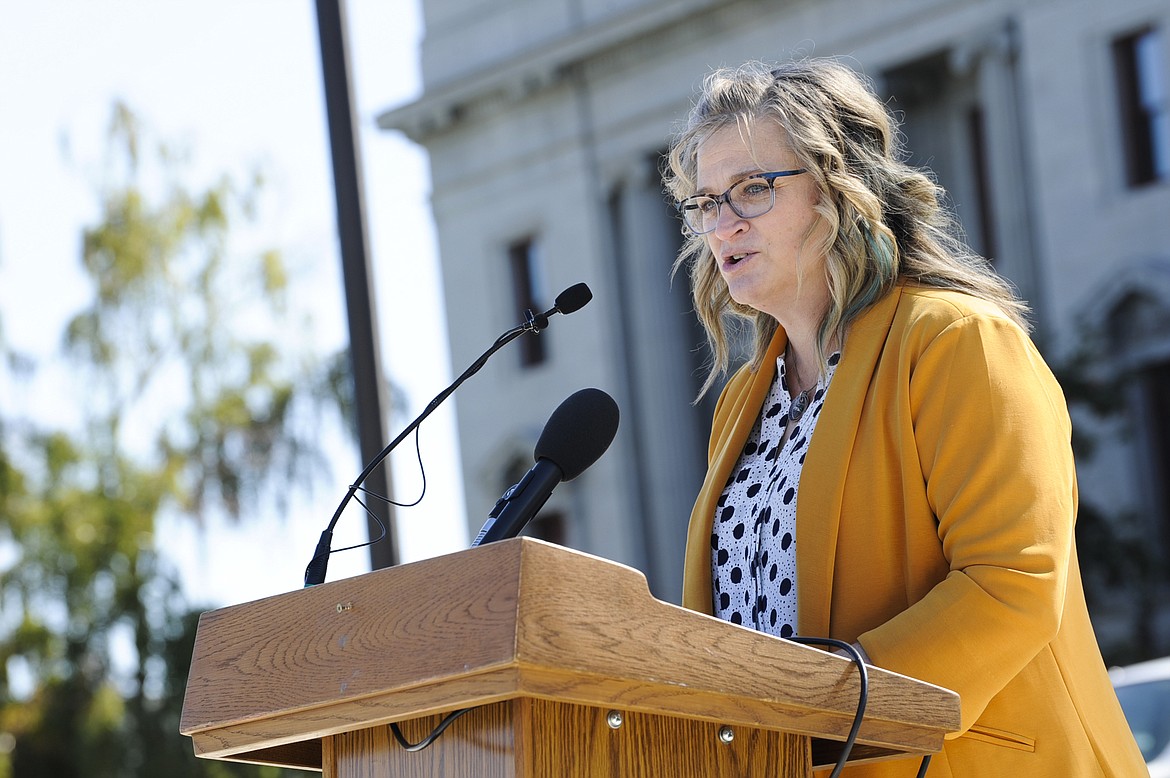Montana voters to decide on 'born alive' abortion bill
HELENA (AP) — A referendum on the Montana ballot in November raises the prospect of criminal charges for health care providers unless they take "all medically appropriate and reasonable actions to preserve the life" of an infant born alive, including after an attempted abortion.
Supporters of the referendum say the proposed Born-Alive Infant Protection Act is meant to prevent the killing of infants outside the womb after failed abortions. That is already illegal.
Opponents argue the act could rob them of precious time with infants that are born with incurable medical issues if doctors are forced to try and treat them.
Americans United for Life, which has offered model legislation for state "born alive" laws, argues the federal Born Alive Infant Protection Act of 2002 only applies at federal facilities and those that receive federal funding, and not at private clinics.
At least half of U.S. states have similar post-abortion born-alive laws in place, according to Americans United for Life, a Washington, D.C.-based organization that opposes abortion, aid in dying and infant stem cell research.
Montana law allows for homicide charges if a person purposely, knowingly or negligently causes the death of a premature infant born alive, if the infant is viable.
When presenting the bill in the Montana Senate last year, Sen. Tom McGillvray said the current state law "basically says 'don't kill it.' This bill says 'save it.' That's the difference."
The legislation says its purpose is to protect the life of any infant born alive following an abortion. However the text says: "A born-alive infant, including an infant born in the course of an abortion, must be treated as a legal person under the laws of the state, with the same rights to medically appropriate and reasonable care and treatment."
The difference in interpretation appears to be how to define "medically appropriate and reasonable care and treatment" and whether the proposed law would apply in cases where an infant is born with medical issues, such as undeveloped vital organs, that are not compatible with life.
"Unfortunately, there are limits to the medical interventions that can change these outcomes," Tim Mitchell, a maternal fetal medicine physician in Missoula, said Wednesday in Helena at a news conference held by Compassion for Families, a campaign organization opposing the referendum.
If passed, the referendum will require physicians to try to resuscitate any live born infant regardless of gestational age and underlying medical conditions, and "will force physicians to attempt to place a breathing tube in a baby so small that it will not fit and there is no lung tissue that can receive breaths," Mitchell said. "It will force them to provide chest compressions and place IV's, and give medications even when the health care team and the family know that none of the interventions will have an impact on the tragic but inevitable outcome."
Republican Rep. Matt Regier, the sponsor of the legislation, said Thursday the proposed referendum simply means that medical providers can't intentionally take the life of an "independent, living, breathing infant."
When asked if that was happening in Montana, Regier said: "Regardless of the numbers, we don't want one to be intentionally taken."
Taking extreme measures to save the life of an infant with fatal deformities "is not medically reasonable," Regier said. "This has nothing to do with biology taking the life of the kid."
Penalties for violating the proposed law include up to $50,000 in fines and up to 20 years in prison.
Montana's Republican-controlled Legislature passed the bill that referred the measure to voters before the U.S. Supreme Court overturned Roe vs. Wade, the 1973 decision recognizing federal rights to abortion.
The proposal will be up for a vote at a time when abortion is an increasingly important issue for voters.
A recent poll found a growing percentage of Americans listed abortion or women's rights as one of up to five issues they want the government to work on.
Jenn Banna of Missoula spoke Wednesday about her daughter, who she knew was going to be born without a properly developed brain. The referendum, she said, might have robbed her family of the little time they were able to spend with her after her birth.
"We knew if she was born alive, we may only have a few minutes to snuggle her until she passed away," Banna said.
"When Anna Louise was born, her heart was beating, but she was unable to breathe on her own," she said.
She and her husband sang to the baby "while her heart slowly stopped beating," Banna said.


